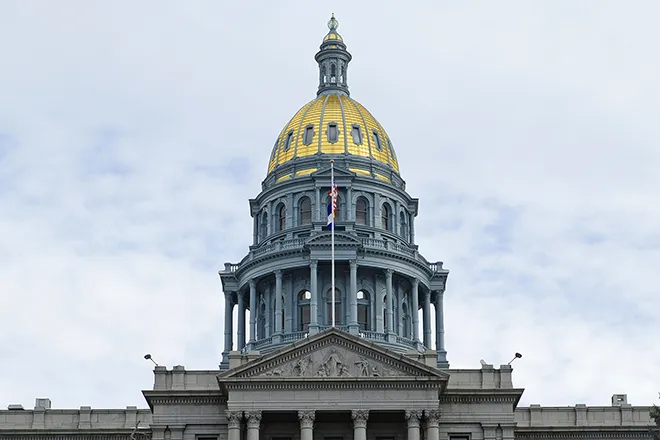
Daily Audio Newscast - June 27, 2025
© AlexLMX - iStock-823000260
Six minutes of news from around the nation.
House GOP holdouts threaten revolt over Trump and Senate's tax bill; NV protects gay marriage as law celebrates 10 years; SD removes driver's license barrier for New Americans; 'Prison gerrymandering' skews NC legislative districts; Report: To Gen Z, 'campus safety' includes ideology, mental health.
TRANSCRIPT
♪♪ The Public News Service Daily Newscast, June the 27th, 2025.
I'm Mike Clifford.
As Senate Republicans eye the finish line on President Donald Trump's massive tax and immigration proposal, there may be one more obstacle standing in the way of what they hope to be era-defining legislation - their GOP colleagues in the House.
That, from The Washington Post.
They report the Senate has transformed key provisions from the House-passed version of the Beautiful Bill Act - a measure that would extend trillions of dollars in tax cuts, spend hundreds of billions on immigration, enforcement, and defense, and cut spending on social benefit and anti-poverty programs.
The Post notes to many House Republicans the legislation now looks unrecognizable and no longer adheres to compromises lawmakers in the lower chamber secured just one month ago.
And this week, the law guaranteeing same-sex marriage equality turned 10.
But advocates are concerned about the growing number of threats it now faces.
A decade after the Supreme Court's historic Obergefell v. Hodges decision, most Americans are on board with gay marriage.
While President Donald Trump has never stated outright opposition, members of his conservative base do, and with a conservative Supreme Court majority.
Justices Samuel Alito and Clarence Thomas have also signaled they'd like to revisit the issue.
Jenny Pizer with Lambda Legal says, despite pressure from the far right, ending same-sex marriage isn't something that has public support.
I think what's key for people to have in mind at the moment is there's no case in front of the Supreme Court pending for court review at this moment, and the Supreme Court can't review a case and consider a case without there being a case, and there is none at this point.
I'm Alex Gonzalez reporting.
In the U.S. alone, there are about 823,000 married gay couples, according to the Williams Institute at UCLA Law School.
Since this week's Supreme Court decision, almost 600,000 same-sex couples have married legally.
And starting July 1, South Dakota will allow interpreters to accompany driver's license applicants who have limited English proficiency during the road portion of their test.
The new law is meant for noncommercial driver's licenses and was adopted this spring with bipartisan support.
Republican Representative Janna Hunt, who also was a traveling nurse, was the main sponsor on the House side.
She says she was motivated after working with Filipino nurses trying to integrate into local society.
And in her hometown of Dupree, Hunt says transportation barriers are a glaring issue for fellow Filipinos serving as teachers.
A lot of them are walking in the middle of winter, however far they have to walk to get to their job.
Over the past decade, South Dakota's Filipino population has grown by nearly 75 percent.
Under the new law, the Department of Public Safety has to approve the interpreter, and the applicant is responsible for recruiting them and paying their fee.
I'm Mike Moen.
This is Public News Service.
A process sometimes known as prison gerrymandering inflates the population numbers in voting districts where prisons are located, which affects the results when states draw legislative districts after the census.
But groups say there's an easy fix for states like North Carolina.
The three most prison-gerrymandered districts in North Carolina have incarcerated populations of close to 4 percent.
Mike Wessler says a U.S. Census Bureau policy means people are counted in the wrong place.
It counts them as residents of a prison cell rather than in their home communities.
When states like North Carolina then use this census data to draw new legislative districts every 10 years, they inadvertently give disproportionate political power to communities that have prisons.
Gerrymandered districts in North Carolina include District 32, where a federal correctional facility is located.
According to the Prison Policy Initiative, only about 4 percent of people incarcerated by the Federal Bureau of Prisons are from North Carolina, meaning the majority of people in the facility are not even from the state.
I'm Eric Tegethoff reporting.
And neighborhoods in Virginia with a higher proportion of people of color tend to be several degrees hotter than others during summer months, according to a new report.
Neighborhoods with individual cities exhibited stark temperature differences, sometimes by as much as 15 degrees.
Todd Lookingbill with the University of Richmond says he studied intra-urban heat islands, or temperature differences in neighborhoods, across one city.
Hotter neighborhoods commonly have fewer trees and surfaces that water can't seep through, like roads and roofs.
He explains that while heat islands have been identified in bigger cities, heat disparities also exist in smaller cities and towns.
Those hot spots were frequently found in historically segregated neighborhoods with more people of color.
We did find in four of our cities that had been historically redlined that those areas that were redlined and were denied kind of housing loans historically, those areas continue to be some of the warmest areas in those towns and cities.
Those environmental justices seem to be persistent through time.
I'm Simone Perez.
Finally, nearly 30 percent of Gen Z college students decided where they would attend school, based at least partly on political reasons, according to a new report.
The education consulting firm EAB found 14 percent of prospective students removed to school from their consideration list for being too conservative, and 12 percent did so for schools they deemed too liberal.
Pam Royal with EAB says a key finding is that prospective students are looking for college choices that reflect their values.
They're eliminating certain institutions that they believe are misaligned with their political values, either because they're too conservative or they're too liberal, they're in a blue state or a red state.
These incoming students are part of what some call the "anxious generation" because of their increased mental health struggles.
Royal says they tend to have a greater sense of anxiety, largely because of social media and pressure to make decisions in an environment with competing messages.
I'm Kathleen Shannon.
This is Mike Clifford.
Thank you for ending your week with Public News Service.
Member and listener supported.
Find your trust indicators at publicnewsservice.org.
















